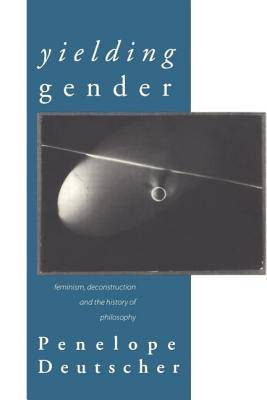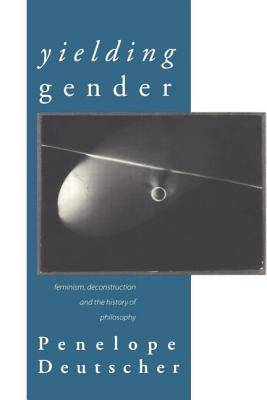
- Afhalen na 1 uur in een winkel met voorraad
- Gratis thuislevering in België vanaf € 30
- Ruim aanbod met 7 miljoen producten
- Afhalen na 1 uur in een winkel met voorraad
- Gratis thuislevering in België vanaf € 30
- Ruim aanbod met 7 miljoen producten
Yielding Gender
Feminism, Deconstruction and the History of Philosophy
Penelope DeutscherOmschrijving
Traditional accounts of the feminist history of philosophy have viewed reason as associated with masculinity and subsequent debates have been framed by this assumption. Yet recent debates in deconstruction have shown that gender has never been a stable matter. In the history of philosophy 'female' and 'woman' are full of ambiguity. What does deconstruction have to offer feminist criticism of the history of philosophy?
Yielding Gender explores this question by examining three crucial areas; the issue of gender as 'troubled'; deconstruction; and feminist criticism of the history of philosophy. The first part of the book discusses the work of Judith Butler, Jacques Derrida, and contemporary French feminist philosophy including key figures such as Luce Irigiray. Particular attention is given to the possibilities offered by deconstruction for understanding the history of philosophy.
The second part considers and then challenges feminist interpretations of some key figures in the history of philosophy. Penelope Deutscher sketches how Rousseau, St. Augustine and Simone de Beauvoir have described gender and argues that their readings of gender are in fact empowered by gender's own contradiction and instability rather than limited by it.
Specificaties
Betrokkenen
- Auteur(s):
- Uitgeverij:
Inhoud
- Aantal bladzijden:
- 232
- Taal:
- Engels
Eigenschappen
- Productcode (EAN):
- 9780415139458
- Verschijningsdatum:
- 16/10/1997
- Uitvoering:
- Paperback
- Formaat:
- Trade paperback (VS)
- Afmetingen:
- 157 mm x 234 mm
- Gewicht:
- 394 g

Alleen bij Standaard Boekhandel
Beoordelingen
We publiceren alleen reviews die voldoen aan de voorwaarden voor reviews. Bekijk onze voorwaarden voor reviews.











